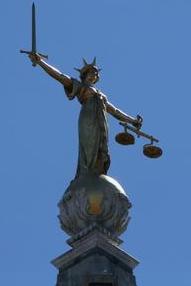Impeachment on Direct
How to deal with unexpected testimony on direct examination – Part 2

Counsel: Was there moonlight at the time you saw the accident?
Opposing Counsel: Objection. Leading and lacks foundation.
Court: Overruled.
Witness: It was the sun.
Counsel: Are you sure?
Opposing Counsel: Objection. Asked and answered and leading.
Court: Sustained.
The witness had previously said there was moonlight. Invariably, your next question is “didn’t you testify that” and before you can finish the question your adversary stands up and objects. The objection is sustained followed by deafening courtroom silence. Before you say another word, you need to decide whether the witness: (1) forgot that there was moonlight or; (2) believes it is the sun.
• Impeachment •
We previously discussed helping the witness remember under FRE 612. Alternatively, If the witness insists that there was sunlight, you need to impeach. At the moment the witness gives you an unexpected and inconsistent answer, she is hostile to you. Your instinct is to pounce and ask leading questions. Your adversary is grinning like a Cheshire cat waiting to object to your next question. You call a sidebar and tell the judge that the witness is a dirty-rotten scoundrel! Meanwhile, the jury is chewing on the witness’s last answer while watching you squirm.
It is a common mistake to believe that impeachment is solely reserved for cross examination. You may impeach on direct. Federal Rule of Evidence 607 provides that: “the credibility of a witness may be attacked by any party, including the party calling the witness.” The manner in which you impeach, at least to start, must be with non-leading questions pursuant to Federal Rule of Evidence 611 (c). If you want to ask leading questions, you need to establish through non-leading questions, that the witness is actually hostile towards you or your client. A typical example is a former employee of your client that has an axe to grind. If you cannot get the witness to openly express antagonism, just impeach with non-leading questions. Below are examples of questions you should ask the witness:
- Mrs. Witness, did you provide a statement to the police an hour after the accident?
- Did you want to provide the police officer with accurate details of the accident?
- Did you provide the police officer with honest answers?
- Did you review your statement with the police officer?
- Did you read your statement to make sure you provided an accurate account of the accident?
- Did you sign the statement after you reviewed it?
- Your honor, may I approach the witness? Witness, showing you what has been previously marked as Exhibit X. Is that your signature?
- What is the date next to your signature?
- Directing your attention to paragraph 3 of Exhibit X. Did you tell the police officer there was moonlight at the time of the accident?
You have impeached the credibility of your witness on direct with the use of a prior inconsistent statement pursuant to Federal Rule of Evidence 613 (a). The moon is still full and your case is still bright.

